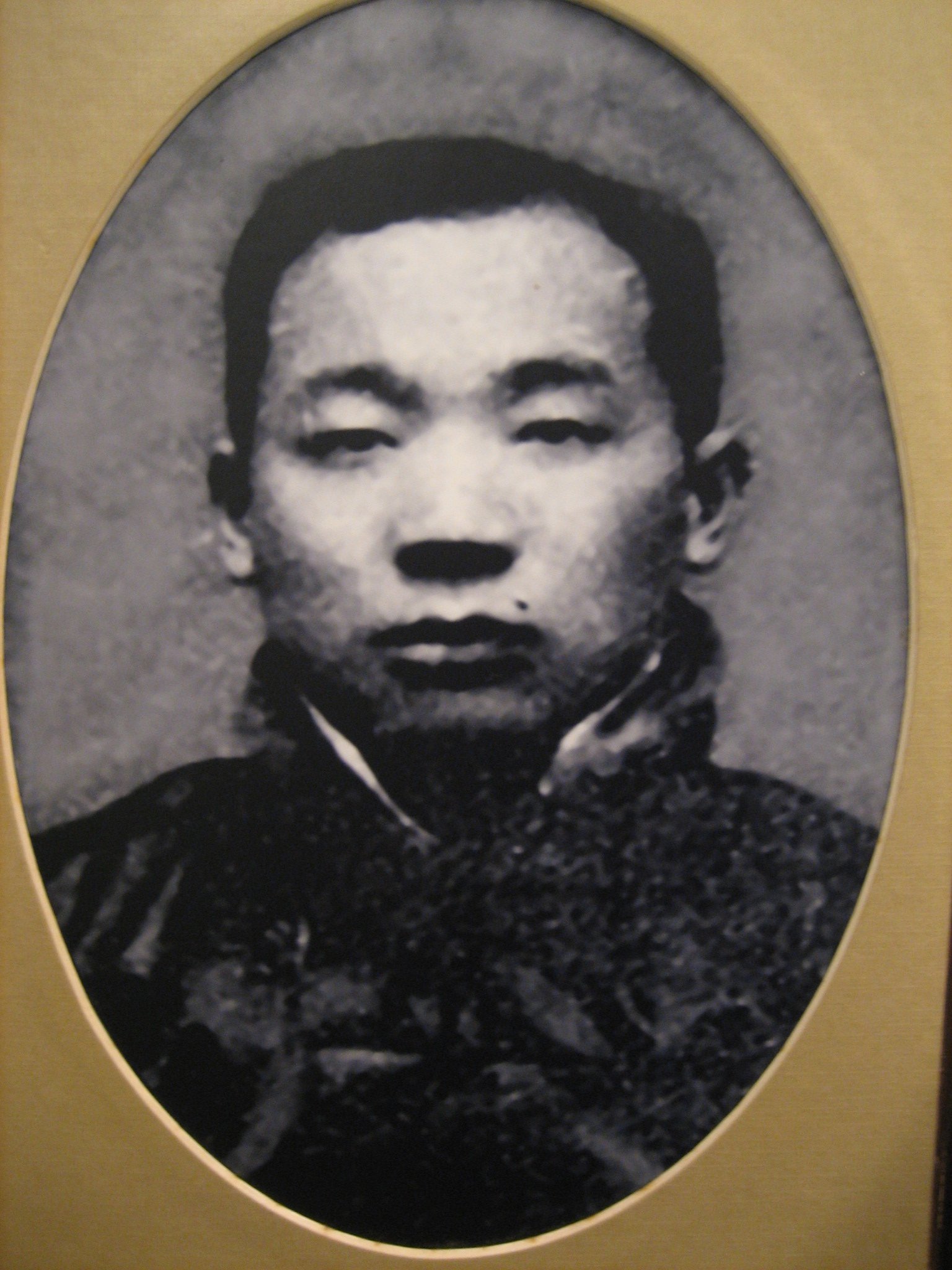- Ma Yinchu
Infobox Person
name = Ma Yinchu

image_size = 180px
caption =
birth_date = 1882
birth_place = Shengzhou City,Shaoxing ,Zhejiang ,China
death_date = 1982
death_place =
occupation =Economist Ma Yinchu (
Simplified Chinese : 马寅初; 1882–1982) was a prominent Chineseeconomist .cite book | last = Mao | first = Zedong | authorlink = Mao Zedong | coauthors = Edited by Michael Y. M. Kau and John K. Leung | title = The Writings of Mao Zedong, 1949–1976 | publisher = M.E. Sharpe | date = 1986 | location = | pages = 361 | url = | doi = | id = | isbn = 0873323912 ]Biography
Early life
Ma Yinchu was born in what is now Shengzhou City, a
county-level city that is administered byShaoxing , in northeasternZhejiang province. He was the fifth child of the owner of a small distillery that specialized in fermented rice liquor. While his father wished for him to carry on this business, Ma showed an inclination toward scholarship. As a result, his father cut him off financially, and their relationship never recovered. At 16, Ma attended middle school inShanghai . Despite losing his father's support, he studiedmining andmetallurgy atBeiyang University (now calledTianjin University). In 1907, Ma received government sponsorship to study economics atYale University , after which he received a Ph.D. ineconomics and philosophy fromColumbia University in 1914.cite book | last = Shapiro | first = Judith | authorlink = | coauthors = W, Alfred | title = Mao's War Against Nature: Politics and the Environment in Revolutionary China | publisher = Cambridge University Press | date = 2001 | location = | pages = 36–7 | url = | doi = | id = | isbn = 0521786800 ] In 1920 he helped to found theShanghai College of Commerce , and in 1923 he became the founding president of theChinese Economics Society . During the 1930s, Ma began to criticize theKuomintang government underChiang Kai-shek , and was subsequently placed under house arrest from 1940–2. In 1949, at the request ofZhou Enlai , he served as a nonpartisan delegate to theChinese People's Political Consultative Conference . From 1950 to 1951, he served as the president ofZhejiang University , and then as the president ofPeking University from 1951 to 1960. [Mao (1986), 361.] In this position, Ma was well-liked, and seen as warm and genuine by his students. However, he was removed due to his unorthodox economic views. [Shapiro (2001), 38–43.]New Population Theory
In June 1957, at the fourth session of the
First National People's Congress , Ma presented his New Population Theory. Having examined trends of the early 1950s, he concluded that further population growth at such high rates would be detrimental to China's development. Therefore, he advocated government control of fertility. During the following three years, Ma's theory suffered two rounds of attacks, and he was dismissed from public life. The charges of the government were that the theory followedMalthusianism , attempted to discredit the superiority ofsocialism , and showed contempt for the people.cite journal|title=Demography in China: From Zero to Now|journal=Population Index|date=1981|first=H. Yuan|last=Tien|coauthors=|volume=47|issue=4|pages=683–710|id= |url=http://links.jstor.org/sici?sici=0032-4701%28198124%2947%3A4%3C683%3ADICFZT%3E2.0.CO%3B2-F|format=|accessdate=2008-01-13|month=Dec|year=1981|doi=10.2307/2736034 ]Rehabilitation and later life
Ma's New Population Theory did not receive mention in the
People's Daily again untilJune 5 1979 . OnJuly 26 of the same year, theCentral Committee of the Communist Party of China formally apologized to him, stating that events had validated his theory. [Tien (1981), 688.] In September 1979, all charges against him were retracted, and he was made honorary president of Peking University. Ma Yinchu died onMay 10 1982 due to heart andlung disease andpneumonia . [Shapiro (2001), 45.]Legacy
Even before Ma's death, scholars were realizing the enormity of the government's error in censoring his views for two decades. This view can be demonstrated by the title of a newspaper article published in 1979: "Erroneously criticized one person, population mistakenly increased 300,000,000". [Tien (1981), 688.] Ma's theory also became enshrined in public policy; China's
One Child Policy draws heavily on Ma's reasoning that "the State should have the power to intervene in reproduction and to control population", and follows his advice in heavily utilizing propaganda on the dangers of population growth. cite journal|title=Wan, Xi, Shao: How China Meets Its Population Problem|journal=International Family Planning Perspectives|date=1980|first=H. Yuan|last=Tien|coauthors=|volume=6|issue=2|pages=65|id= |url=http://links.jstor.org/sici?sici=0190-3187%28198006%296%3A2%3C65%3AWXSHCM%3E2.0.CO%3B2-R|format=|accessdate=2008-01-13|month=Jun|year=1980|doi=10.2307/2947873 ] In Ma's hometown, a middle school has been named in his honor. His birth home is being renovated as a museum, and the street on which it resides is now called "Famous Man Street". [Shapiro (2001), 36, 45.] Nationally, the scholar is featured prominently in primary and middle school textbooks as "Uncle Ma", where he is praised for his contributions to population control and environmental protection. In 1997, a nine-part series about his life was aired in commemoration of the 40th anniversary of the publication of his population theory. [Shapiro (2001), 45.]References
Wikimedia Foundation. 2010.
